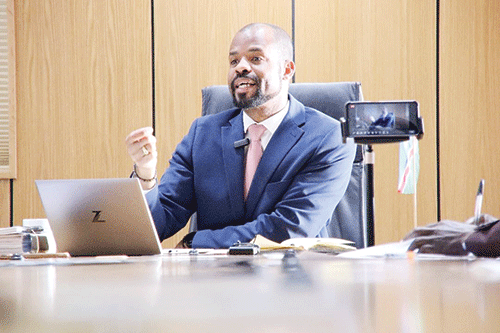Telecom Namibia’s low profitability, constrained cash flows and overworked network infrastructure prompted the company to seek a major cash injection.
In previous years, the telecommunications giant implemented a number of cost-cutting measures, resulting in some crucial operational tasks being
underfunded.
This assessment was made in the Namibia Post and Telecom Holdings Limited’s (NPTH) 2021/22 annual report, which was recently tabled in the National Assembly.
NPTH’s mandate is to oversee all state-owned postal and telecommunications operations in the country. The holding company owns shares in Namibia Post Limited (NamPost), Telecom Namibia Limited (Telecom), and Mobile Telecommunications Limited (MTC) on behalf of the public.
“To remedy this, Telecom planned to invest N$2.3 billion in capital expenditure over the next five years, with half of it to be internally financed and the balance to be sourced from external financiers.
To enable it to source funds from the financial market, Telecom needs to further restructure or strengthen its balance-sheet by eliminating some shareholder-related liabilities and by requesting an additional direct capital injection from NPTH,” reads the annual report.
To this end, NPTH has decided to invest N$235.6 million for the funding of Telecom Namibia’s capital expenditure project, namely the acquisition of a new network operations and business support systems (OSS/BSS).
When contacted for comment, Telecom Namibia (TN) CEO Stanley Shanapinda said the company approached commercial banks, and will issue a joint statement with the relevant banks soon.
“Securing external funding is key to Telecom Namibia’s turnaround strategic plans,” he noted.
As part of the capital expenditures, the company’s plan is to accelerate the roll-out of fibre to pass and connect thousands of homes, thereby improving the coverage of the existing 10 676km (65.2% of the national coverage) fibre backbone.
It further aims to connect more homes and businesses, with packages which start at four Megabits per second (Mbps), and up to 50Mbps. These packages could go up to 300Mbps.
The Namibian ICT sector remains highly competitive, with increasing customer demand for fibre and mobile services.
Furthermore, the annual report states that the group reported a profit after tax of N$48.4 million (2021: N$35.4 million). However, the revenue declined 4.5% year-on-year, putting pressure on profitability and free cash flow.
“The declining revenue is attributable to all revenue segments, except for voice and information technology, with mobile revenue reflecting the largest reduction year-on-year. This was mainly driven by the increase in the rate of churn of mobile subscribers due to network quality challenges, legacy technologies, service delivery challenges and the historically limited investment into network expansion and modernisation,” the report added.
Meanwhile, independent researcher Joseph Sheehama said the refocused strategy represents a turnaround for TN as revenue grows and costs are cut.
“This will improve the company’s liquidity position by reducing operational expenses and capex, and optimising working capital. It is important that the exercise should not affect clients’ service, and to remain relevant, unique and competitive in providing quality solutions to the public,” emphasised Sheehama.
However, eternal financing might affect their financial position due to the fact that interest will be paid to the financiers. In general, a company turnaround strategy is very crucial for business survival.
Dividends
For the first time since inception, the NPTH recorded that all three subsidiaries declared dividends, which demonstrates that all three subsidiaries strive to enhance their long-term financial sustainability and profitability.
MTC declared over N$356 million in dividends for the year under review; NamPost declared an ordinary dividend of N$8 million; while Telecom Namibia declared an ordinary dividend of N$10 million. Altogether, since inception, the NPTH Group has paid N$5 billion to the government as dividends.
Interogating the challenges, the annual report observed that Telecom Namibia’s sustainability was an issue, which places the company under threat due to its legacy systems.
“Resolving this ongoing long-term issue continues to receive the board’s full attention. Another challenge that NPTH continues to face is ensuring long-term viability for NamPost. Before NPTH is dismantled, the board is obliged to establish whether NamPost’s business model is sustainable, especially in terms of traditional postal services, which have become largely redundant in the current technological space,” the annual report continued.



